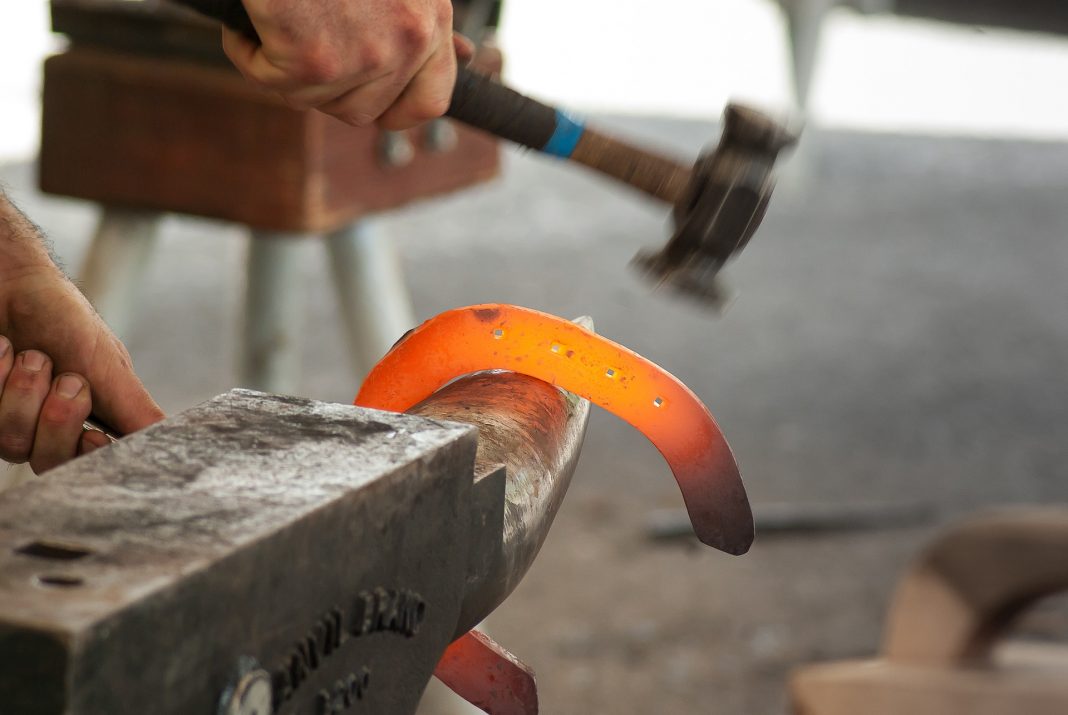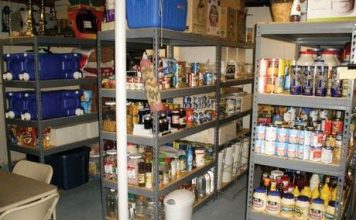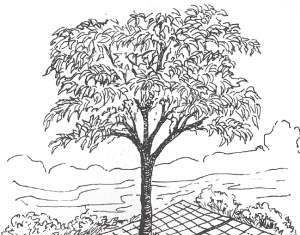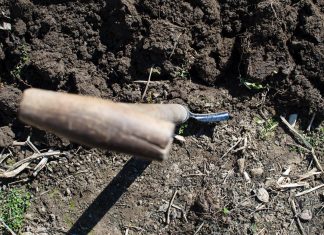| Issue #74 • March/April, 2002 |
A certain degree of self reliance is obtainable by those who have the knowledge and skills, resourcefulness, courage, common sense, and tools to perform most of the tasks necessary to their own survival and way of life. Living any distance outside populated areas requires a greater level of do-it-yourself capability than within metropolitan areas, where citizens tend to live under a system of interdependence.
 An anvil and forge can be especially handy for making and repairing other tools. |
One of the reasons why I like tools is because I associate them with individual freedom. The proper tools can help people produce much of what they need, make necessary repairs to their equipment themselves, and maintain their own homes, farms, yards, gear, and machines. The more people are able to do themselves, the less they have to rely on others. Greater independence means greater freedom.
Obviously, having a vast array of tools and hardware alone does not make a person highly capable. Knowing how to use the tools is every bit as important as the tools are themselves. But having a healthy assortment of good tools can sure make life a lot easier, and anyone with the desire and determination can learn how to use them.
When you think about it, just about everything we do, whether it’s brushing our teeth, cooking and eating, driving to work, mowing the lawn, tilling the garden, typing a letter on a typewriter or computer, or even talking to friends on the telephone, involves using some device you could think of as the tool for that particular task. Modern folks are heirs to thousands of years of technological advancement in the sophistication of the tools we use. And we use many of them without much thought, often taking them for granted. But without any of them where would we be?
Making a list of the necessary tools you should keep at the homestead can be quite a task. A mostly self-sufficient country home can be expected to require equipment to serve a variety of different functions that are not generally concerns to most people who live in cities. The need for good tools in the country will always be great.
 There are some basic hand tools no home should be without. |
For the sake of order, you could categorize tools into groups according to their main application. At least it’s a place to start, but you might want to reserve several pages for your list. It seems that every time I attempt to make a top-ten priority list of tools, I end up actually making a list of categories. For example, a wilderness backpacker will carry an assortment of tools needed on the trail and around camp, a mechanic will need an assortment of automotive tools, a carpenter will need building tools, and so on. Just listing the categories can get exhaustive, because within each category you might find subcategories. The carpenter category may include tools for rough framing, finish carpentry and cabinet making, tile setting, roofing, etc., each subcategory requiring its own specialty tools. Metal working might include machinist and lathe tools as well as tools for welding, blacksmithing, tinsmithing, and so on. And of course there are a lot of crossover tools as well. A simple pair of pliers might be just as useful to a mechanic as to an electrician, or to a gunsmith. There are so many different kinds of tools which could be considered essential to the backwoods home that it’s sometimes hard to know where to begin and where to end. But there are certain basic tools that perhaps every household should have, and covering those will be the main focus of this article.
 Gun maintenance tools |
At the top of the list we might include those tools with which we could most easily produce other tools. It used to be common to see old anvils and coal forges around farm houses and in barns. They were used for a lot of different purposes besides making horseshoes. On the anvil, a variety of knives, axes, chisels, punches, brackets, hinges, and every imaginable type of farm implement could be shaped or repaired. Basic blacksmithing tools can be extremely useful in a rural environment. Although often overlooked in this day and age, I would place the forge, anvil, hammer, tongs, and other hot metal working tools at the top of the list for the backwoods home.
Second on our list we might include the multi-function tools popular now. These would include the plier-type combination tools from Leatherman, Gerber, SOG, and Buck, as well as the Swiss Army Knives from Wenger or Victorinox. Although somewhat limited by size, these tools combine a list of capabilities into a single device, making them quite versatile and useful for small jobs. With the Leatherman SuperTool, you can slice, carve, scrape, saw, remove bottle caps, dig, file, crimp, and grip, among other things. It’s a wonderful product in my opinion, and certainly something I would choose over a number of bulkier single-function tools whenever forced to prioritize.
 Burning wood in the home can involve an assortment of wood gathering, log splitting, and chimney cleaning tools. |
Before leaving the topic of multi-function tools, I should also mention the basic fence pliers that have been around for many years in one style or another. Most of these have a hammerhead opposite a pointed horn for pulling large staples, and the tool can be used as pliers, hammer, staple puller, and wire cutter. It’s a four-in-one combination tool, and it is hard to imagine a farm without one or more of these around.
Most people would probably put some type of knife at the top of the list. This makes sense because knives have hundreds of different uses. A knife would be at the top of my list whenever the tools to produce a knife aren’t practical, such as wherever space and weight limitations dictate. But I would agree with those who believe that a knife is a basic item that belongs in every category.
 Multi-function tools are valued for their excellent versatility. |
Drills and drill bits should be high on the list. Drilling holes in things is one of the most important tasks common to several categories. I use my own drill press as much as I use any tool in my shop.
Another commonly overlooked category of tools with really a fundamental purpose is the thread-cutting taps and dies category. You won’t find these in every toolbox, or even in the majority of American homes, but wise do-it-yourselfers keep a few of the common taps and dies in their shops. With them a person can make their own screws, nuts, and bolts. It can be inconvenient having to run into town every time you need some tiny machine screw with a special thread size because you can’t find one in your screw bin. Some are hard to find anyway, possibly not even available at the local hardware store. It is extremely handy to be able to cut your own as needed.
We can continue adding the usual hand toolshammers, saws, pliers, screwdrivers, clamps, vises, wrenches, files, rasps, squares, tape measures, levels, pry bars, etc.and assemble a comprehensive list of basic items until we’re confident that we could tackle most jobs around the ranch. And of course, there’s no telling where all this will take you.
 Everything here was purchased at garage sales for around $100. That wouldn’t buy much at new prices. You can make money go a long way if you buy used. |
It’s probably a good idea to focus on basic hand tools first and add power tools last. For one thing, power tools require more care and understanding to safely operate. They tend to wear out faster than simpler hand tools, and they cost more. And out in the country you may not always have electricity available. You can always accomplish a great deal with basic hand tools, just as your great grandparents did years ago.
Quality tools can be expensive, but the good news is that amazing bargains are to be found almost everywhere. Thrift stores, pawn shops, flea markets, and garage sales often sell good used tools unbelievably cheap. Sometimes they need cleaning, or they may even need to be repaired or sharpened in some cases, but most of the things I’ve found could be restored to service with little or no additional investment. It’s always a good idea to look for quality. American made or European tools are usually worthwhile, but I tend to avoid products from China or Taiwan. The more tools you collect, the better you’ll be able to fix and restore the broken ones.
There’s nothing quite like a good tool shop for dealing with so many of the chores around the house. If you don’t already have a shop set up at your country home, now is a good time to get started. If you are set up already, I hope I’ve got you thinking about how to make it even better.















